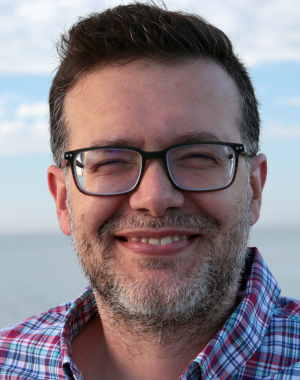
- Lorenzo Mosca
- Beaupre 325D
- Assistant Professor
- (401) 874-2364
- Ph.D., University of Pavia
- lorenzo@uri.edu
My research interests lie at the intersection between organic chemistry, photochemistry and systems chemistry.
In the research group, we are focusing efforts into the study of reversible covalent bonds that can be activated using a variety of triggers such as a change in pH, redox state, or irradiation with visible light. A complex reaction network is one in which several chemical reactions take place at the same time and where each individual reaction shares a starting material, a catalyst, or a product with another reaction of the network. These networks can be studied by activating and suppressing reactions using different triggers. We can apply theoretical and practical knowledge of complex reaction networks to the pre-biotic conditions found in the primordial Earth, where large chemical reaction networks eventually gave birth to self-replication and metabolism processes and, ultimately, to the first instances of life. Furthermore, we can apply these reversible covalent bonds to the design of self-healing polymers, smart materials, drug-delivery systems and sensors.
A second area of research is in green organic syntheses. In particular, we will be targeting oxidation reactions of small organic molecules. We will move away from d- and p-block-based oxidants, instead relying on the activation of oxygen from the air using light and an appropriate photosensitizer to generate singlet oxygen, a powerful oxidant. By using non-solvent phases we can protect the photosensitizer, the starting materials, and products from collateral reactions. We also increase the half-life of singlet oxygen, which will help us by giving increased yields and recoveries. New reactors for the photosensitized oxidation of organic substrates in non-solvent phases will be needed. Our research will focus on continuous-flow and microfluidic reactors. We aim to discover and refine green methods for the syntheses of pharmaceutical starting materials and intermediates, or renewable monomers for sustainable polymers.
